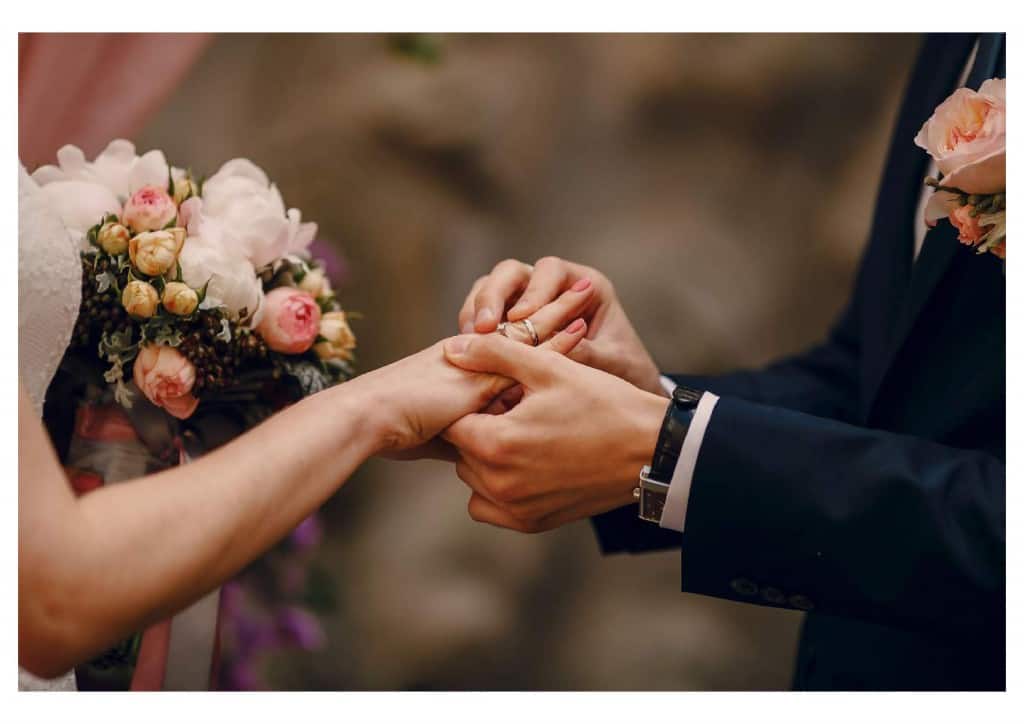
Subclass 820 Partner Visa or Onshore Temporary Partner Class UK Subclass 820 Visa
If you are in Australia and in a relationship with an Australian citizen or permanent resident or an eligible NZ citizen, you could apply for a Subclass 820 Partner visa to live with your partner.
You may include your children in a combined application. Your spouse or de facto partner must not have been charged or convicted of a registrable offence (click here to learn more about reg. 1.20KB sponsorship limitation).
If you are outside of Australia, you can apply for the Offshore Temporary Partner Subclass 309 visa (click here to learn more) – Subclass 820 equivalent.
Subclass 820 Partner visa is the first stage visa prior to getting your permanent resident or permanent partner visa. However, when you applied for the Subclass 820 Partner visa, you are also lodging an application for the second stage permanent visa (click here to learn more about onshore permanent Partner Class BS Subclass 801 visa).

Same sex relationship
You can apply for the Subclass 820 Partner visa even if you are in a same sex relationship.
You can be married or in a de facto relationship with your partner to apply for a Subclass 820 Partner visa. However, if you are in a de facto relationship, you must demonstrate to the Department of Immigration (Department of Home Affairs) that you have been in that relationship for at least 12 months. Alternatively, you have registered your domestic relationship with the relevant authority in your state or territory.
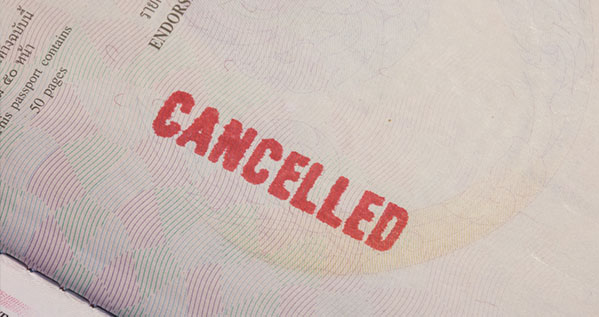
Last visa cancelled or refused
If you do not hold a valid visa or your visa was cancelled or subject to section 48 bar (click here to learn more about section 48 bar), that is, you are living in Australia as an unlawful non-citizen, you could still apply for the Subclass 820 Partner visa if you are able to satisfy Schedule 3 criteria (click here to learn more). If you are unable to satisfy the Department of Immigration there are compelling reasons to allow you to apply for this visa while you are in Australia, your visa application will be refused without accessing if you satisfy the other visa criteria.

Sponsorship limitations
Your partner must agree to sponsor you for a Subclass 820 Partner visa. If your partner is under 18, you can be sponsored by his or her parent or guardian who is over 18 and is an Australian citizen or permanent resident or an eligible NZ citizen.
Your partner’s sponsorship application may be refused if:
- your partner was granted a Partner visa or a Prospective Marriage visa (click here to learn more about TO 300 visa) in the last 5 years and have already sponsored 2 other partners for a Partner visa or a Prospective Marriage visa. This limitation may be waived if there are compelling circumstances, for example, previous partner is deceased or abandoned the relationship, or have young children, or your relationship with your current partner is longer than 2 years (if there is a child to the relationship). This is known as reg. 1.20J sponsorship limitation;
- your partner was granted a Contributory Parent visa (click here to learn more about Class CA Subclass 143 visa) or Contributory Aged Parent visa (click here to learn more about Class DG Subclass 864 visa) after 30 June 2009. Your partner cannot sponsor you for 5 years from the date of their visa grant if you were in a relationship before their visa was granted. Some exceptions apply if there are compelling reasons, other than financial, for not applying for the same visa at the same time. This is known as reg. 1.20KA sponsorship limitation.
- your sponsor was charged with a registerable offence, unless under 18 at the time of approving the sponsorship or the charge has been withdrawn, dismissed or disposed of without the recording of a conviction. This is known as reg. 1.20KB sponsorship limitation.
- your sponsor was convicted of a registerable offence (click here to learn more), unless under 18 at the time of approving the sponsorship or the conviction has been quashed or set aside. The Minister may still approve the sponsorship if the sentence was completed more than 5 years before the date of sponsorship application and was not charged with a registerable offence since completed that sentence, and there are compelling circumstances affecting your partner or you. Or if the sentence was completed more than 5 years before the date of sponsorship application and was charged with a registerable offence since completed that sentence but the charge has been withdrawn, dismissed or disposed of without the recording of a conviction and there are compelling circumstances affecting your partner or you. This is known as reg. 1.20KB(3) sponsorship limitation.
Your partner will be required to provide to the Department of Immigration an Australian Federal Police (AFP) National Police Check or Clearance (NPC). The NPC will reveal your partner criminal history, if any.
If the Department of Immigration refused your partner’s sponsorship application, your Subclass 820 Partner visa application will also be refused. And your partner may not be able to apply to the AAT for a merits review of the decision to refuse his or her sponsorship application.
If your partner’s sponsorship application is approved, you must demonstrate to the Department of Immigration that your relationship is genuine and continuing.
To support your Subclass 820 Partner visa application and to demonstrate that your relationship is genuine and ongoing, you will need to provide evidence of:
- financial aspects of your relationship;
- social aspects of your relationship;
- nature of your household; and
- nature of your commitment to each other.
If after lodging your visa application your partner dies, the Department of Immigration may still grant you a Subclass 820 Partner visa if they are satisfied that you were in a relationship to the time of your partner’s death. Furthermore, the Department of Immigration will need to be satisfied that your relationship with your partner would have continued if your partner had not died. You will also be required to prove you have developed close ties with Australia.

Relationship breakdown
If after you have applied for Subclass 820 Partner visa application and your relationship with your partner has broken down, and your partner informed the Department of Immigration that he or she is withdrawing his or her sponsorship, you may still be granted the visa if you have suffered from family violence or domestic violence during the relationship (click here to learn more and here or click here to learn what is domestic violence).
Similarly, if there is a child from your relationship and the Court has awarded you custody or access rights to your child, the Department of Immigration may also grant you the Subclass 820 Partner visa.
In both of the above situations, you may also be granted the Permanent Partner visa.
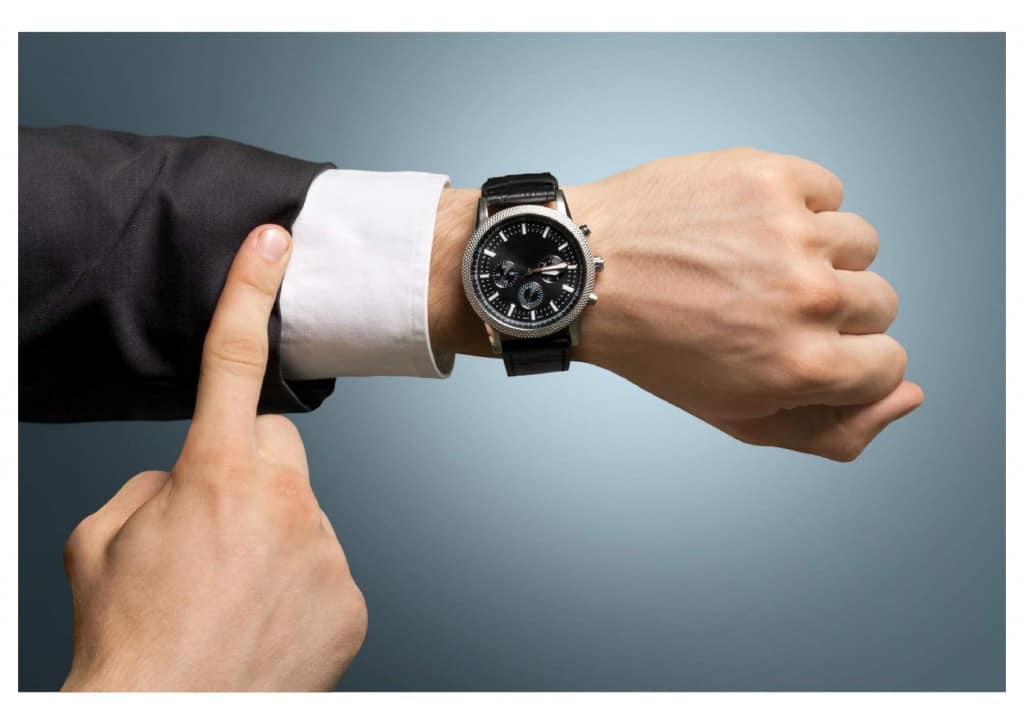
Processing time
The processing time for Subclass 820 visa applications may take between 22 and 26 months (click here to check the current processing time).
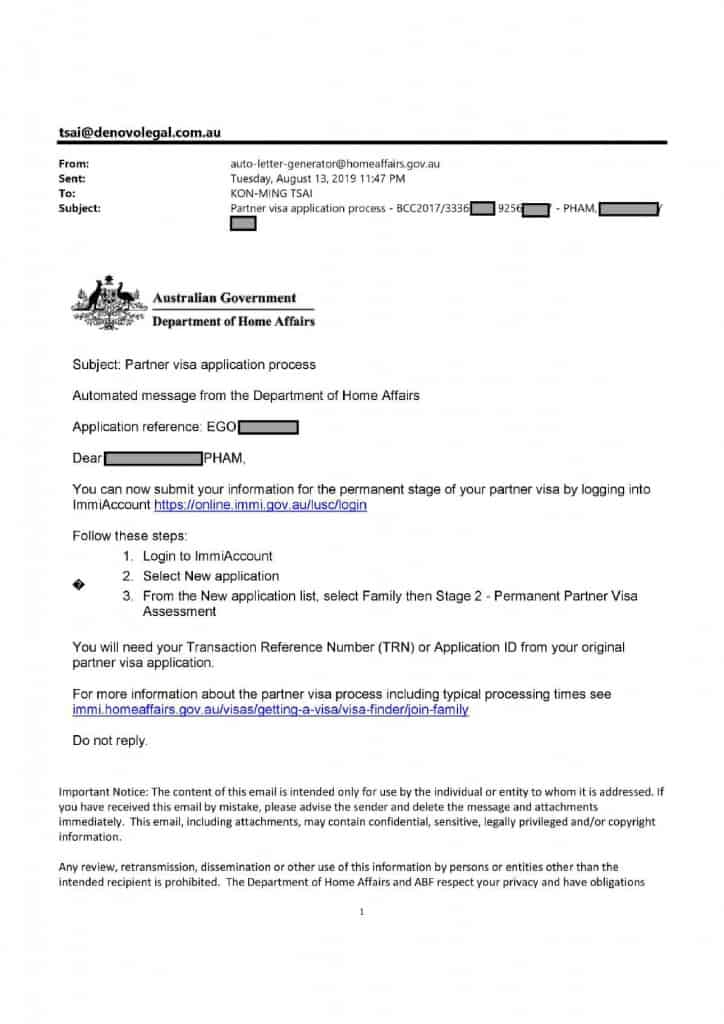
Invited to apply for permanent Partner visa
The Department of Immigration will usually invite you to apply for the second stage or Permanent Partner visa after 2 years. However, they may also grant you a combined Subclass 820 Partner visa and Subclass 801 Permanent Partner visa if:
- you were in a long-term relationship (usually more than 3 years) before you lodged the visa application; or
- you have a dependent child (not a step-child) from the relationship and that relationship is more than 2 years before you lodged the visa application; or
- your relationship has ceased due to death of your partner, or domestic violence or family violence, or there is a child to the relationship, and you have child custody or maintenance.
Partner visa application fee or charge is extremely high and the Department of Immigration may not refund you the fee if your sponsorship or visa application is refused. You should consider engaging the services of an immigration lawyer or registered migration agent to assist you with your application (click here to find out how an immigration lawyer or registered migration agent can help you).
If you are in Australia when you apply for this visa, you may be granted a bridging visa to allow you to stay in the country until your application is finalised (click here to learn more about bridging visa).
Australian migration law is complex and difficult to understand, contact our immigration lawyer for a consultation (fee applies) to help you apply for this visa or to decide if this is the best visa for you. You may also refer to our FAQs for answers regarding visa application or visa cancellation by clicking here.
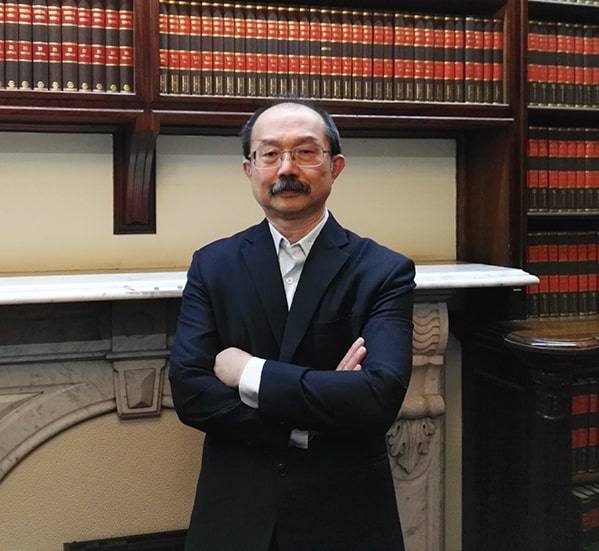

041 222 4020 or WeChat: AUDvisa
This article is not intended to be or taken as migration legal advice. The author of this article disclaims any liability for any action or omission on the information provided or not provided in this article. You should always consult an immigration lawyer or a registered migration agent to form an informed opinion on your immigration matter.



